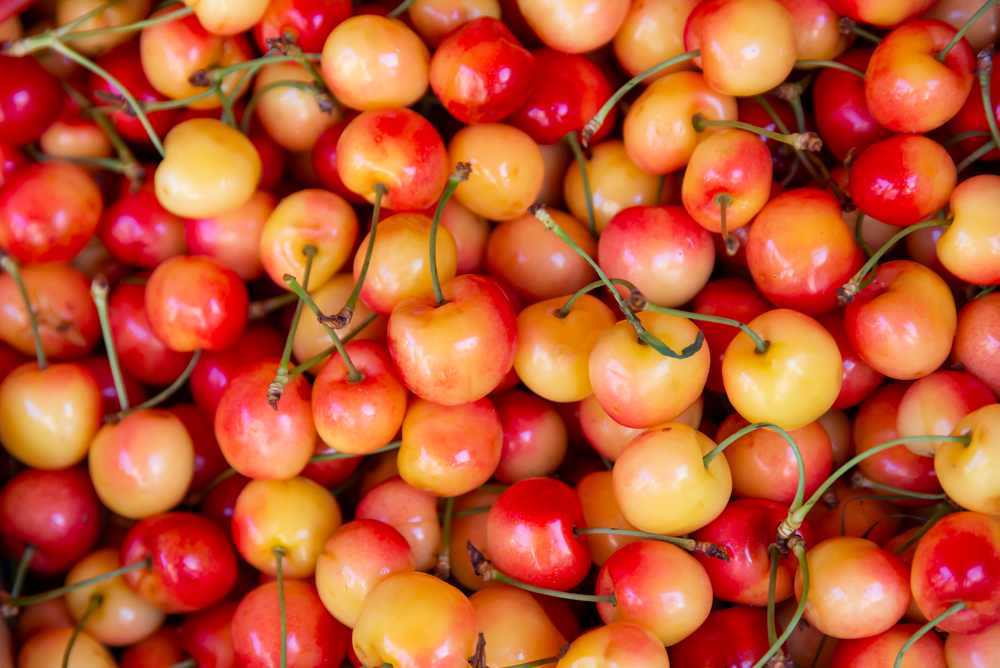The virus has brought many overlapping problems.

It isn’t just meatpacking plants that have been hotspots for COVID-19 to spread within the agricultural industry.
In Washington state, reports Jesse Newman at the Wall Street Journal, apple and sweet cherry farms are struggling with COVID-19 in a number of ways. The local industry is facing problems establishing and maintaining safe operations, caring for the infected, and is struggling to get enough labor.
Washington state is the country’s leading producer of both apples and sweet cherries. (Sweet cherries are classified differently from tart cherries; the big table cherries like Bing and Rainier are both sweet cherries.) In mid-summer, Washingtonian farmers are fully operational, maintaining trees, harvesting, and packing fruit, and in this particular mid-summer, none of that is easy.
Newman’s reporting reveals spikes in positive COVID-19 testing in packing facilities and temporary housing. In this sector of the industry, as in many others, workers are often migrants, and live in ad-hoc housing facilities including motels, dormitories, and sometimes tents while they exhaust the season. To save money, farm owners often cram workers into small spaces, with multiple workers in individual rooms—a disaster during a pandemic of an infectious disease that’s spread by close physical contact.
Washington’s fruit is shipped worldwide, which means that there are also substantial packing and shipping operations. Those, too, as in the meatpacking plants, require workers, often indoors, working in close physical proximity.
State officials instituted rules to attempt to protect the workers during COVID-19; new guidelines include keeping handwashing stations, implementing physical distancing, and requiring workers who test positive to stay home—or be isolated, if in temporary housing. But even after those improvements were promised, workers say, they were not always followed; hundreds of farmworkers protested back in May due to a lack of follow-through and a lack of increased pay to compensate these workers for the increased risk they are enduring.
This week, reports Gregory Scruggs at the Washington Post, Yakima County, where much of these farms are located, tested as the county with the second-highest infection rate on the West Coast. The county now has 20 percent of the state’s positive tests, and only 3.2 percent of its population.
In addition to the packing and temporary housing issues, apples and cherries remain a largely manual part of agriculture; the fruits are often too delicate to be harvested by machine. Those factors are combining to really harm Washington’s fruit industry, though it’s unclear right now how that will be reflected in the price and availability of apples and sweet cherries.